Protein Production 3.0
It took more than a decade to convince the world, that the future of transportation is electric. Then, as we see today, the acceleration takes place exponentially.
The same transformation is now happening with food and it’s basic component: protein.
All stars are aligned for a future where technology will play a key role again, and at the same time generate value for investors at scale.
Market
Forecasts indicate that due to technology, investments and regulations, 22%1 of the global market will be alternative proteins by 2035.
Products
Due to intensified global collaboration within the startup ecosystem, quality will go up and prices will drive down and therefore support customer wide adaption.
People
Main drivers for the protein transition for consumers are health & nutrition, taste and safety. They are ready to pay a premium for taste parity due to value added over conventional animal protein.
Climate
Based on a conservative share of 11%1 for alternative proteins by 2035, a reduction equivalent of 850 million tones of CO2 worldwide by 2030 can be reached - equal to decarbonizing 95% of the aviation industry.
Global Footprint
- HME Factory New Jersey / USA
Global Footprint
- HME Factory New Jersey / USA
Best In Class People
Our team supported the development of food production factories in the HME field since many years, including the platforms for leading products from the Livekindly Collective in Oss (Netherlands) and Fry’s (South Africa).
Constant improvements and intensive investments into R&D led to products that taste and can be cooked like their animal-based peers, with more nutritional value.
Due to many years being in the future of food business as founders and investors, we can rely on global expertise and strong relationships and know what works and what is needed to scale fast with the right investments.
Proven Technology
We are focusing on the most reliable and promising technologies, turning plants and cells into proteins:
HME (High Moisture Extrusion): used e.g. in TWP (Textured Wheat & Pea Protein) production and ready for fast scaling.
Fermentation: Not only a key technology when it comes to egg or dairy replacements incl. production of plant-based cheese, but also for other applications to produce protein e.g. based on mushrooms.
Cultured: Introduced in 2013 by the founder of Mosa Meat, Mark Post, the production of meat based on cells will play a key role in the protein transformation, also in combination with HME and fermentation.
Highest Impact
There is no doubt because a proven fact that investments in plant-based meat are delivering the biggest emissions cuts of all sectors.
When comparing billions of tones of CO2 equivalent saved per $1 trillion invested, the clear winner is plant-based protein, followed by cement with only 1/3 of savings.
Compared to cars, an investment in the future of protein saves over 10x more than generating wealth by supporting the transformation of cars and vans (e.g. Tesla) and even 20x more than making aviation more sustainable.
Unparalled Experience
Over the last years, we identified leaders in the plant-based food world, invested in over 100 businesses after an intense due diligence and supported 3 unicorns incl. Beyond Meat, Impossible Foods and Just. 7’000 remain in the database under close watch.
Our team has direct access to the cumulated experience of hundreds of years of developing the future of food. The result are products that are loved by omnivores, vegetarians and vegans alike.
All of the founders we invested in since 2016 are mission aligned and the best guidance going forward. With our joint experience, we can build the next generation of a global food backbone, delivering high value for customers and outstanding returns for investors.












































































